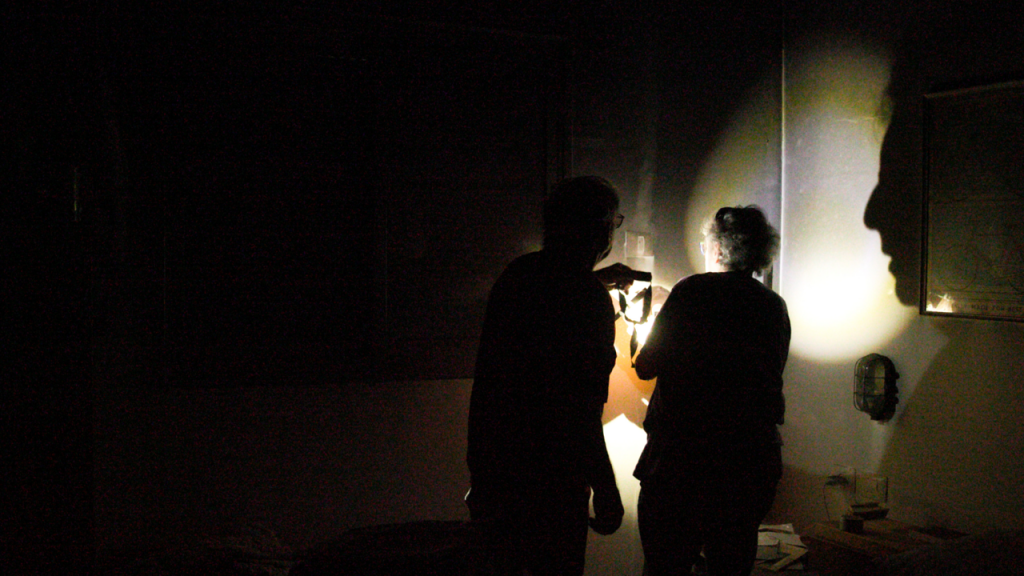After title cards describe a post-apocalyptic world ruined by plagues, famine, and war, 40 Acres wastes no time and opens with a scene of brutal violence. A Black and Indigenous family defends their farm from white invaders, and more blood spurts in one gory sequence than most movies feature over their whole runtime. Even a child takes part in the defense and takes out one of the men with a single, well-aimed shot. She then teases her older brother for not being able to finish the job on one of the attackers, a right that it seems she has fairly earned. Whatever else 40 Acres does in the remaining 100 minutes, it’s clear from the start that it is not fucking around.
This feature debut from writer-director R.T. Thorne is bold, refusing to hold back on the grim reality of what this scenario not only might look like in general but specifically what it could be for people of color. Over a decade has passed since a plague decimated the world’s fauna, with the ensuing food scarcity leading to wars and starvation. With the most previous resource being farmland, those lucky enough to own plots are targets for marauders and militias. The Freeman family fiercely keeps outsiders at bay with perimeter defenses of their Canadian farm and a lot of guns if the fence is breached. Led by matriarch Hailey (Danielle Deadwyler) and her partner Galen (Michael Greyeyes), they approach the everyday rhythms of their lives with military precision. Even 10-year-old Cookie (Haile Amare) is a deadly shot.
Over the radio — their only contact with the outside world — Hailey learns that attacks on nearby farms by bands of cannibals are increasing and she remains steadfast in keeping her family isolated. Yet her oldest son, Manny (Kataem O’Connor), is drawn to their mysterious neighbors when he glimpses a young woman (Milcania Diaz-Rojas) swimming nearby.

Not everything in 40 Acres fully makes sense. Hailey urges her family not to waste bullets in one moment, while they unload a few shots to the head of a downed intruder in another, rather than finishing them off with knives. And the script from Thorne and Glenn Taylor (with a story credit for Lora Campbell) features some clunky dialogue that even a decorated performer like Deadwyler (Till) struggles to make sound natural—to say nothing of the rest of the cast, who don’t have the depth of experience on bigger films and shows. 40 Acres also leans a bit too heavily on shocking violence and grim elements, and it’s not always clear what it is trying to say.
And yet, there’s something here. Thorne brings a music video director’s eye, and there are some strong compositions, especially in overhead shots. The action sequences are compelling, even through the brutal killings, and the final act is relentless. The score from Todor Kobakov melds naturalistic elements with ratatat percussion that sounds like gunfire. Deadwyler is predictably good at playing the tough-as-nails mother, but her lesser known costars are all also effective.
What sets 40 Acres apart the most is how it takes a new approach and offers a fresh perspective on the oft-mined post-apocalyptic genre. With its rural setting and people of color as its focus, it offers different insights into what it means—and what it takes—to survive after a cataclysm. Especially if other survivors think you don’t deserve what you have. 40 Acres doesn’t always excel at what it is trying to do, but it is doing something I haven’t seen before in a genre that can feel like it is simply remixing the same elements, over and over until the actual end of the world.
B-
“40 Acres” is in theaters now.



